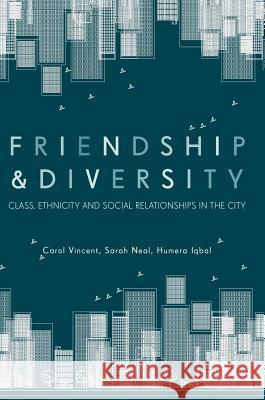Friendship and Diversity: Class, Ethnicity and Social Relationships in the City » książka
topmenu
Friendship and Diversity: Class, Ethnicity and Social Relationships in the City
ISBN-13: 9783319730004 / Angielski / Twarda / 2018 / 243 str.
Kategorie:
Kategorie BISAC:
Wydawca:
Palgrave MacMillan
Język:
Angielski
ISBN-13:
9783319730004
Rok wydania:
2018
Wydanie:
2018
Ilość stron:
243
Waga:
0.46 kg
Wymiary:
21.01 x 14.81 x 1.6
Oprawa:
Twarda
Wolumenów:
01
Dodatkowe informacje:
Wydanie ilustrowane











